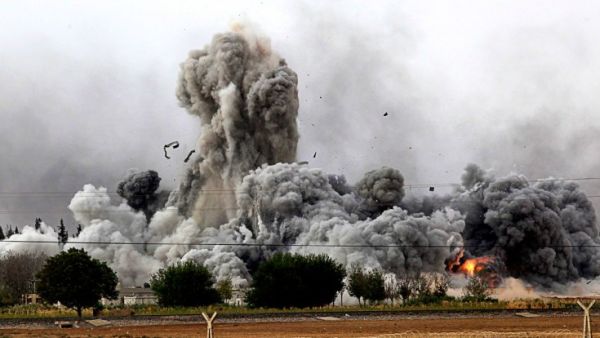The Pentagon has delegated authority to lower ranked commanders to approve airstrikes against Daesh targets that could potentially put civilians at risk, a defense official said Wednesday.
The change that took effect months ago but revealed for the first time Wednesday, allows commanders on the ground to authorize some of “the most high-risk-but-high-reward strikes” against the militant group, according to anti-Daesh coalition spokesman Col. Steve Warren, who spoke to reporters from Baghdad via videoconference.
Before the change to the rules of engagement, nearly all US airstrikes that risk civilian life required formal approval from leadership at US Central Command headquartered in Tampa, Florida.
According to Warren, the change is an “effort to speed up the bureaucratic process for approving strikes”.
Warren also said the authority is vested back to Tampa in case of a high number of civilian casualties is at risk but he did not give a number at which Central Command would be required to step in.
A rapid response is essential for many "dynamic targets” that may be available for a short time, according to Warren. But it also removes a layer of scrutiny to the military executing an air campaign that increases the risk of civilian casualties.
“This does not translate to more civilian casualties,” Warren said. “This translates to a more rapid execution of strikes because we don’t have to send requests all the way to Tampa anymore. We can do it here.”
In some cases, the final decision rests with Army Lt. Gen. Sean Macfarland, commander of the U.S.-led coalition against Daesh. In other cases it may be a lower-ranking officer.
The Pentagon has acknowledged killing just 26 civilians in the air campaign that began almost two years ago and that has dropped more than 40,000 bombs.
Human rights organizations contend that the number of causalities is far greater.
By Kasim Ileri








